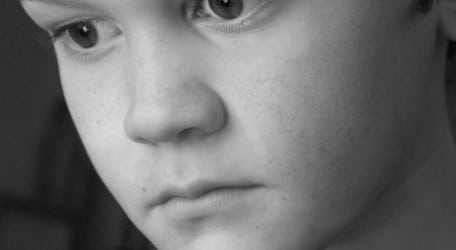
Under pressure
Mothers on the edge of a nervous breakdown as they grapple with Maltese grammar, pale children with dark circles under their eyes who are not allowed to start swimming until exams are over, the whole family anxiously holding its breath until the results come out…yes folks, it’s exam time in Malta, and I just find the whole thing so counter-productive to real learning.
I find it particularly cruel during the primary school years . This rule about ‘no swimming until exams are over’ has always baffled me. Why? Why can’t children have a chance to relax and enjoy a few hours away from the books over the weekend before a stressful exam? Once a mother told me it’s because the child might catch a cold and miss her exam. Yes, in June in our hot weather.
I hear of parents who even rule out any form of sports or other activities until exams are over. So instead of giving them a way to release their pent-up frustration, we lock them indoors to compound matters even more. No wonder so many households start freaking out during exam season.
As for the exams themselves, here again I am flummoxed. Surely there must be a better, more humane way to test children’s progress over the whole year than to make them sit for hours and hours studying information by heart which they will promptly forget by the next term? Those who say assessments and the occasional test are not enough, conveniently gloss over the fact that other countries with different educational systems seem to do just fine, with children coming out of their formal schooling years well-rounded and happy.
Ah, happy. That adjective which is so often discarded when we speak about children and school.
One educator told me, “Some schools actually pride themselves that they are ‘one year ahead’ in their syllabus, that is, Year 5 kids are taught the Year 6 syllabus.”
What’s the point of this? A child’s mental development has to take its natural course, and these kids won’t be any brainer than their counterparts once they leave the formal school system, I assure you. They will just be more stressed out with having to absorb more information than they can handle.
Of course, not all schools in Malta insist on children slavishly memorizing reams of stuff. Some parents tell me that the independent schools seem to have a different ethos when it comes to learning, which is nice to hear, preferring to focus on stimulating children mentally rather than have them repeating information parrot-fashion. Even some church schools have changed the way they assess students, encouraging revision throughout the whole year rather than a marathon cramming session at the end of the scholastic year.
On the other hand, by the time students reach secondary level, I do agree that some form of exams are necessary, especially since our educational system has its roots in the British ‘O’ and ‘A’ level system of qualifications. So how do we strike a balance between children receiving a sound education with reasonably good results without churning out tiny little robots who grit their teeth and sit for exam after exam as an escalating resentment and loathing of school makes them want to firmly slam their books shut forever once they leave Form 5?
School should be about making children curious and inquisitive about the world around them, opening up doors to knowledge and encouraging them to explore different subjects until they find the area which best suits their character. While some schools seem to be doing this, it is clear that others are not.
That is why you find children who can reel off an impressive list of Maltese proverbs on cue, while never quite mastering the correct spelling of their mother tongue. That is why we have English as an official second language, and yet many of our youngsters (especially in state schools), leave Form 5 at the age of 15/16 without being able to utter a single coherent sentence in English.
It is not that I’m against memorizing things as such – in fact, it was only by learning the Maltese forom by heart that I learnt where to put the blessed “gh” in any given word. Likewise, I think multiplication tables do need some form of memory work if you’re not going to spend the rest of your life at a loss without a calculator. Training yourself to remember bits of information like dates and even poetry is actually quite a good workout for the brain. It’s when learning is reduced to just mindless repetition without real understanding that I feel it is losing its purpose.
For example, I feel that reading for the pure enjoyment of reading has been lost, as books have come to be only associated with textbooks on which the exams will be based.
Having said all this, we cannot always point fingers at the system.
Sure it is easy to blame the distractions of the Internet, PlayStation, chatting online and SMS texting, for this lack of interest in reading in children, but then parents cannot yell “why don’t you pick up a book?!” at their kids, when they themselves never read a book either.
Educating children is a huge task and obviously not everyone is born with the gift and ability to learn academic subjects. We should, however, at least be striving to give every child the basics which they will need in life; the rudimentary skills which define literacy.
And I doubt whether piling on the pressure of exams at a tender age is the way to achieve it.
- June 11, 2012 No comments Posted in: Opinion column





